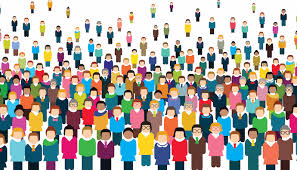Community health centers have taken on a big role in the nation’s healthcare as the COVID-19 pandemic has continued to impact the nation. Nurses who work in these centers find their skills in high demand.
According to the National Association of Community Health Centers (NACHC), federally funded centers provide essential access to primary care for people who may not be able to access it through traditional means. Whether there are barriers from language, income, lack of insurance, or transportation, these centrally located health centers remove many of those barriers to care.
Access to healthcare is especially important right now, as the coronavirus is having a devastating impact on communities that are predominantly of people of color and immigrants, and where people live in densely populated neighborhoods and homes. Many of these communities also have a high number of essential workers who must be out in the community daily—increasing the risks to their health and that of those around them. Some community centers provide care for rural areas, where there’s little access to healthcare, but still a high need. The Rural Health Information Hub offers a toolkit for healthcare workers in these areas.
The NACHC states that with the effective preventative care and emergency care, community health centers are able to divert people away from the emergency departments which may be their only viable healthcare option. In addition to healthcare, community health centers also offer or coordinate much needed services such as translation or interpreter services, transportation, and the case management of complex issues and conditions.
Staff also act as excellent community advocates and work to explain, distribute, and educate patients on health conditions, treatment options, home care, and disease management. By doing this, patients and their families can have better outcomes as they know how to manage all aspects of their health. Patients learn about any conditions or symptoms through education provided with a focus of culturally competent healthy practices and behaviors that will work for them.
As an affordable and viable option for approximately 29 million people in the United States, the nearly 1,400 community health center organizations nationwide provide a place where residents go for healthcare delivered by a staff that understands the specific details of their community and how those details can impact their health. Some states have organizations devoted to community healthcare, such as the Massachusetts League of Community Health Centers, that offer more information, resources, and history of these vital centers.
Nurses interested in a career working in community health can find out more through the American Public Health Association, an advocate for providing high-quality and effective public health options. A healthy community allows residents many more options, and community health centers help provide that lifeline.
From pregnancy and neonatal care to addiction or heart disease, community health nurses will see it all in their practices. It’s an excellent role for those who are committed to both lifelong learning and the foundation of a healthy community that is focused on equity.
- WOC Nurses Week Highlights Specialty - April 16, 2024
- Honoring Radiology Nurses Day on April 12 - April 12, 2024
- Travel Offers New Career Possibilities - April 8, 2024



